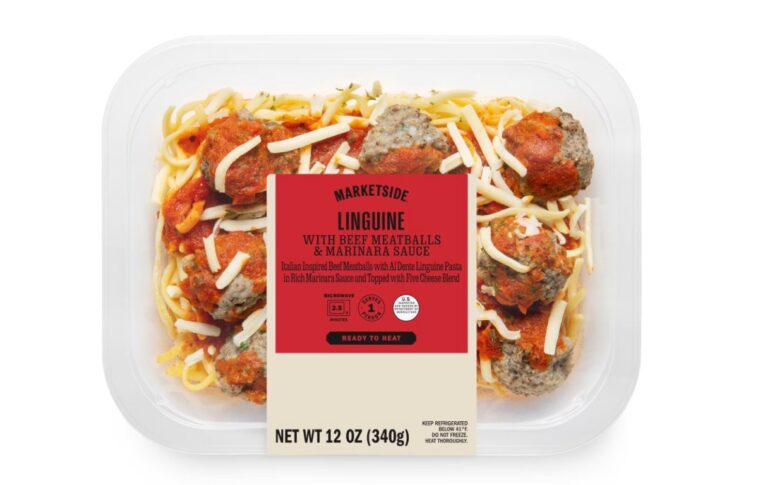Four people have died in a Listeria outbreak tied to a growing recall of ready-to-eat pasta meals sold nationwide at Walmart, Trader Joe’s, Kroger, and Albertsons, health officials said this week.
The CDC began investigating the outbreak in June, with cases steadily mounting over the summer, reaching 20 confirmed infections across 15 states as of September 30. Nineteen of those infected were hospitalized, while four deaths were reported in Illinois, Michigan, Texas, and Utah. One pregnancy ended in fetal loss linked to the illness. And, as is the norm with Listeria, officials warn that those numbers likely understate the real toll.
The FDA first flagged the recall on Sept. 25 while investigating Listeria monocytogenes contamination. The list has since expanded. Recalled products include items sold at Walmart, Trader Joe’s, Kroger, and Albertsons stores (including Safeway, Vons, Pavilions, Randalls, Tom Thumb, and Carrs):
| Store | Product | Size | Best-By Dates | Product Code |
| Walmart | Marketside Linguine with Beef Meatballs & Marinara | 12-oz trays | Select late Sept/early Oct 2025 | — |
| Walmart | Marketside Grilled Chicken Alfredo with Fettuccine | Various sizes | June 2025 or earlier | — |
| Trader Joe’s | Cajun Style Blackened Chicken Breast Fettuccine Alfredo | 16-oz trays | Sept. 20, 24, 27, 2025 | — |
| Kroger | Home Chef Heat & Eat Chicken Fettuccine Alfredo | 12.5-oz trays | June 19, 2025, or prior | — |
| Albertsons | Ready Meals Pesto Bowtie Pasta Salad | Bulk | Sept. 13-29, 2025 | 27133000000 |
| Albertsons | Basil Pesto Bowtie Pasta Salad | Bulk | Sept. 13-29, 2025 | 29492100000 |
| Albertsons | Ready Meals Pesto Bowtie Pasta Salad | Bulk | Sept. 8-26, 2025 | 27133000000 |
| Albertsons | Basil Pesto Bowtie Pasta Salad | Bulk | Sept. 8-26, 2025 | 29492100000 |
| Albertsons | Ready Meals Pesto Bowtie Pasta Salad | Bulk | Sept. 20-29, 2025 | 27133000000 |
| Albertsons | Basil Pesto Bowtie Pasta Salad | Bulk | Sept. 20-29, 2025 | 29492100000 |
| Albertsons | Basil Pesto Bowtie Pasta Salad | Bulk | Sept. 11-29, 2025 | 21649200000 |
| Albertsons | Grilled Chicken & Basil Pasta Extra Large | Bulk | Sept. 18-29, 2025 | 21303500000 |
| Albertsons | Ready Meals Basil Pesto Bowtie Salad | Bulk | Sept. 18-29, 2025 | 29130800000 |
| Albertsons | Ready Meals Spinach Bowtie Pasta Salad | Bulk | Sept. 16-26, 2025 | 21142600000 |
| Albertsons | Ready Meals Basil Bowtie Pasta Salad | Bulk | Sept. 16-26, 2025 | 21191300000 |
Note: Albertsons family includes Safeway, Vons, Pavilions, Randalls, Tom Thumb, and Carrs stores.
Cases have been confirmed in California (2), Florida, Illinois, Indiana, Louisiana (2), Michigan (2), Minnesota, Missouri, Nevada, North Carolina, Ohio, South Carolina, Texas (3), Utah, and Virginia.
What to do if you have a recalled item?
If you have any recalled product, don’t taste it “to check.” Throw it out or return it for a refund. Wash and sanitize anything it touched, such as bowls, cutting boards, and fridge shelves. Then wash your hands. If you’re pregnant, over 65, or have a weakened immune system, and you develop flu-like symptoms within two months of eating a recalled item, call your doctor.
Listeria can be serious. Symptoms can look like a bad flu—fever, muscle aches, headache, stiff neck, confusion, loss of balance, convulsions, sometimes diarrhea or other GI issues—but the infection can turn dangerous quickly in high-risk groups, including pregnant people (who may face miscarriage, stillbirth, or premature delivery) and newborns.
Walmart and Sam’s Club stated that they are committed to product safety and are posting recall information on their websites. Trader Joe’s noted its recall is out of “an abundance of caution” after testing on another brand with a shared ingredient source raised concerns. Federal agencies say they’re still tracing the source and will update the alert as needed.
Bottom line: check your fridge, scan the labels and dates, and when in doubt, toss it.

